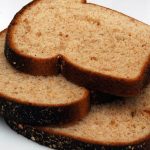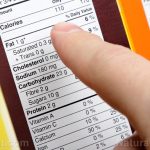
Pharma drug researchers give up trying to understand how curcumin works; you’re better off taking it in its natural form
Wednesday, May 02, 2018 by Ralph Flores
http://www.naturalnewsingredients.com/2018-05-02-curcumin-not-suited-pharmaceutical-drugs.html

There are a lot of things that curcumin can do; however, one thing it can’t do is be used in making synthetic drugs, according to an article published in the Journal of Medicinal Chemistry. The review, which looked at the medicinal chemistry of the compound, concluded that curcumin is a “highly improbable” lead compound, given its wide array of biologically active chemical constituents.
Curcumin, of course, is the most recognized constituent in turmeric, an adaptogenic herb used in many traditional systems of medicine around the world. Given its various applications, the compound has been the focus of many studies that aim to understand its effects on human health. In the article, the authors studied whether curcumin could be used as a lead ingredient in conventional drugs. In particular, they focused their efforts on both the individual curcuminoid compound and mixtures of curcuminoids, which are active compounds found in turmeric.
Conventional pharmaceutical research methods attempt to isolate active compounds in natural products to determine potential candidates for pharmaceutical drug development — they are not designed to assess the synergistic constituents of plants, which is often the key to their potency.
For an ingredient to be considered as an ideal candidate for a lead compound in a drug, it must first be chemically stable and dissolve easily in water. In addition, it should also be able to effectively act on its target, become readily available once it enters the body, have a wide range of distribution, and possess stable metabolism and low toxicity. Curcumin, according to the authors, does not have these properties. They also added that the compound has recently been classified as both a PAINS (pan-assay interference compounds) and an IMPS (invalid metabolic panaceas) candidate. Being a PAINS candidate, in particular, means that the compound interferes with assay measurements rather than in actual compound-target interactions. On the other hand, IMPS are compounds that report bioactivity in all processes, making them prone to over-reporting and over-studying.
Based on these results, researchers didn’t know how to measure curcumin as a single compound (because it has multiple biologically active compounds), or its ability to support human health (it is an adaptogen, meaning it supports many bodily functions as needed; it does not “target” one organ or body process). Furthermore, curcumin is fat-soluble, not water soluble, meaning it needs oil or fat to be digested. They also report that after studying multiple clinical tests on the effects of curcumin, they concluded that curcumin might not be used efficiently as a conventional drug candidate.
However, the authors acknowledged that this doesn’t mean that curcumin – when it is found in its natural element – is useless. “We do not rule out the possibility that an extract of crude turmeric might have beneficial effects on human health,” they wrote. “There is increasing evidence that [chemically complex traditional medicine] agents cannot be described with reductionist pharmacology models.”
The results of the study have also been widely covered, albeit the results were misinterpreted. In a statement, Dr. Maged Sharaf of the American Herbal Product Association said the coverage of the results “misinform the public about turmeric and turmeric-based ingredients [emphasis added]. ”
In particular, the results of the study were interpreted to invalidate the effects of turmeric and its derivatives, when the issue raised by the study was the use of curcumin as an ingredient for conventional drugs. “Turmeric has [a] long history of human use both as a food seasoning and a health remedy, and its benefits are well-documented,” he added. “There are dozens of published clinical studies showing that turmeric and its constituents impart significant health benefits, and misinterpreting this paper discussing curcumin viability for drug development to discount those benefits does a disservice to human health.” (Related: Turmeric and omega 3s can cure diabetes – but you’ll never hear that from your doctor.)
To put it simply, using curcumin in conventional treatments where it is expected to target a single symptom or condition is unlikely, as its effects cannot be properly assayed or utilized. The conclusion, of course, doesn’t affect curcumin alone: Many plant-based nutrients, when they were examined using conventional “methods,” have been inconclusive. This could indicate that modern medical procedures have yet to properly test certain constituents for their health benefits, such as those of herbs and spices.
If the results of the study are any indication: It’s better to get your daily fix of curcumin from where it actually came from, so you can enjoy all of its benefits.
Sources include:





